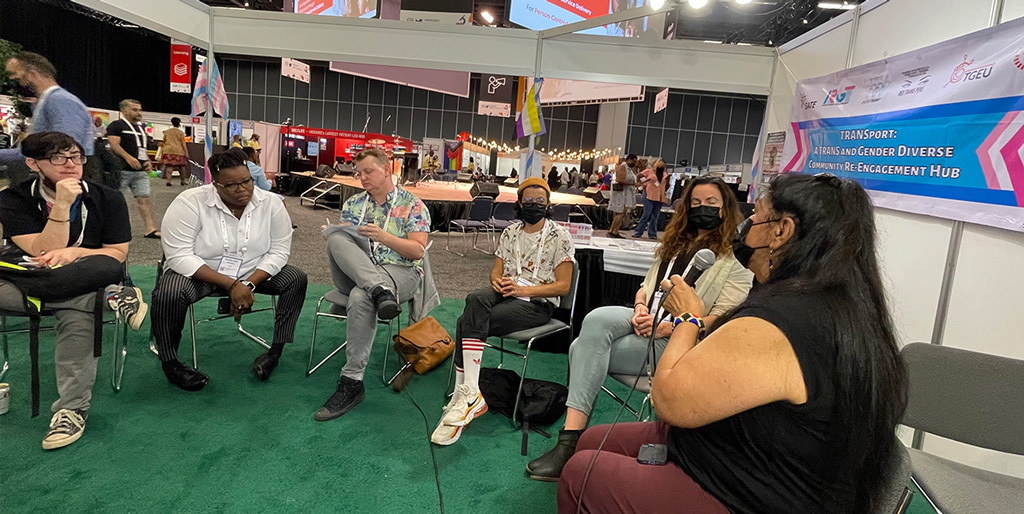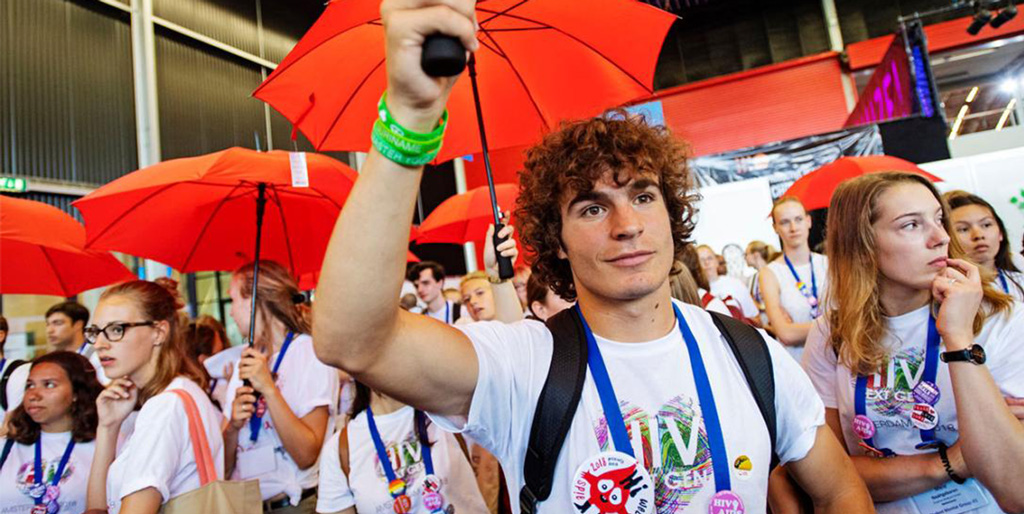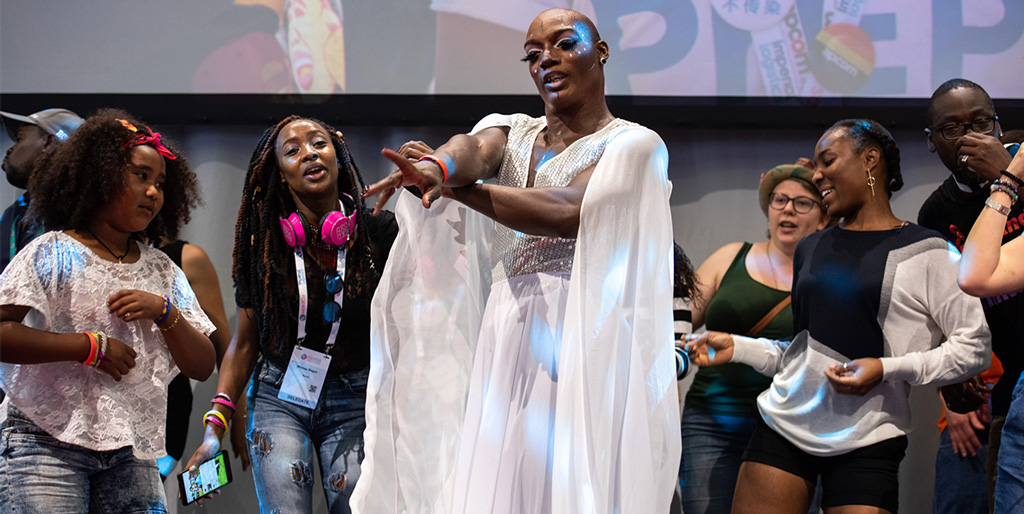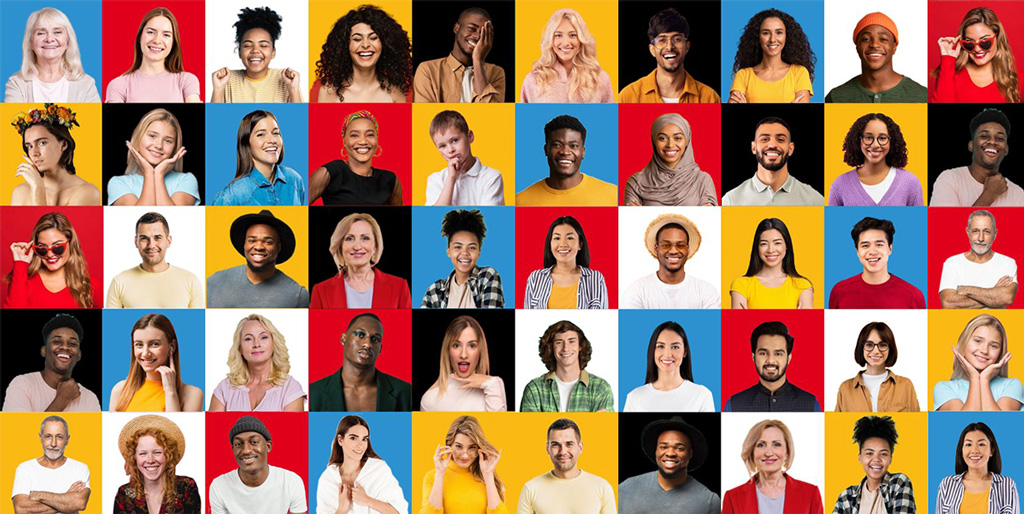Within the International AIDS Conference – AIDS 2024, as part of the regional #PutPeopleFirst campaign, VirusOFF meets with leading experts from the Eastern Europe and Central Asia (EECA) region to discuss key aspects where health and human rights come to the fore. These issues not only have a significant impact on the lives of people living with HIV, but also determine the effectiveness of public health policies and programs in the region.
Walls are not the answer. #PutPeopleFirst!
You can learn more about the EECA region and AIDS 2024 at aids2024.virusoff.info and our social networks.
“We hope this conference will become a platform for our voice on migrants’ rights and advocacy”.
Hanna Ariabinska
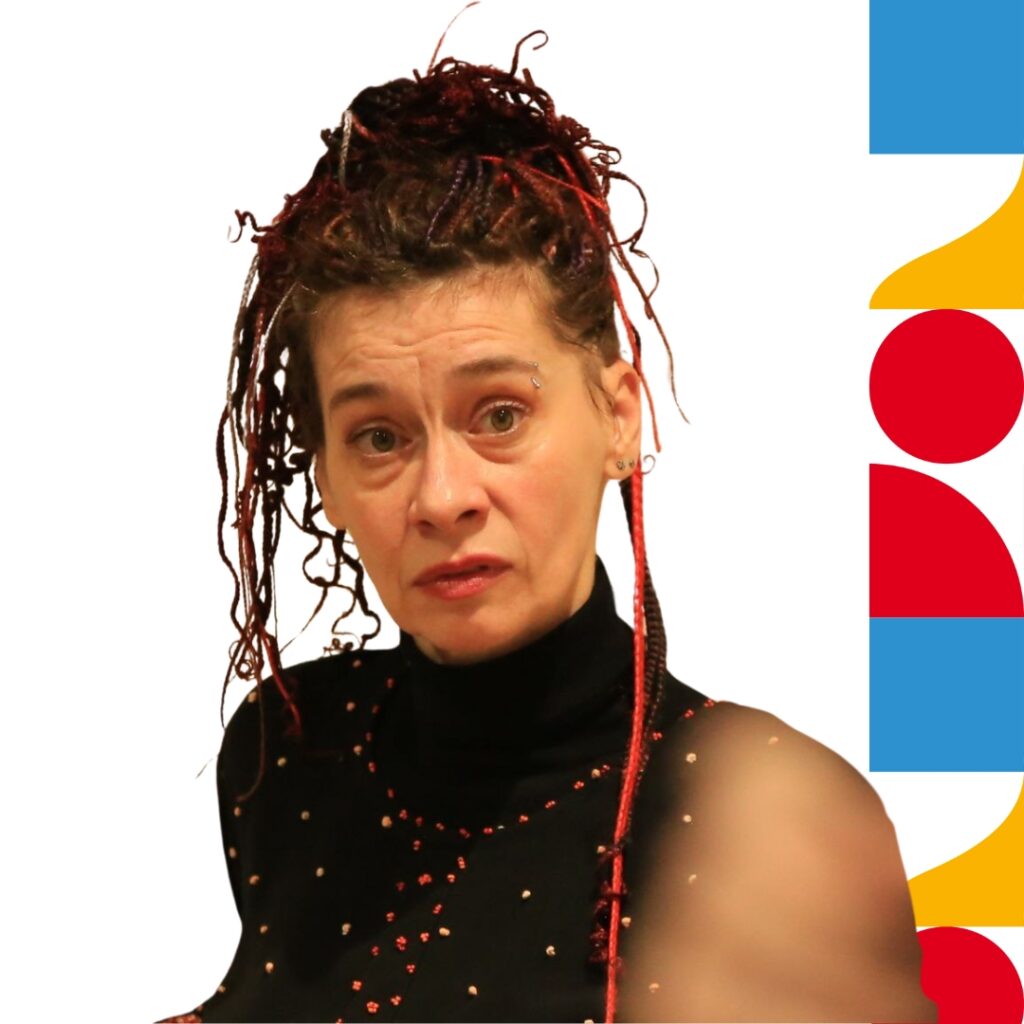
Hanna Ariabinska, a well-known HIV activist in Eastern Europe and Central Asia region, member of Positive Women (Ukraine), and head of Fundacja HelpNowHUB, shares with VirusOFF her life journey in the fight for the rights of people living with HIV and her hopes for AIDS 2024.
Hanna, how did your work as an activist begin? What motivated you to become an activist?
Hanna: I was motivated to become a more active citizen and advocate for key populations because I was also HIV-positive. I learned about it in 2008, but I only became active and open about it in 2015. Since 2016, I have been working in HIV service organizations in Ukraine, supporting initiative groups, leading support groups, and providing support as a peer counselor.
My journey to awareness started with the fact that when I found out my HIV status I needed help, but I could not get it: at that time medical protocols did not allow me to start treatment immediately, I got such an opportunity only in 2009 when my physical condition was critical. While going through the stages of adjustment and communication in the medical system, I realized that there is a lot of stigma, pressure, rejection and prejudice against HIV-positive women. Patriarchal stereotypes, discrimination and rights violations make us vulnerable in the general medical system and in accessing HIV services.
What were the key challenges of being forced to move to Poland because of the war in Ukraine for you?
Hanna: The move to Poland in March 2022 was unplanned. I realized that I had many children, so I could not go far. I had a stock of medicines thanks to doctors from Ukraine, so it was not an urgent problem. I also took a statement from the AIDS center where I was registered so that when I crossed the border I would have all the necessary documents.
The first weeks in Poland were critical, we thought about how to survive, where to live and what to eat. It was only after two months that I began to test the medical system in Poland – in the city of Bydgoszcz, where we were staying. There I found a center providing HIV services and medication. The experience of advocacy, activism and social support in Ukraine helped a lot because at the beginning of the war there was almost no information about the community of people living with HIV.
Most people who crossed the border did not speak Polish, and there were no answers to Ukrainian questions. The public health hotline set up by the Polish government was not helpful. Information from Ukrainian activists and my contacts was very helpful.
Have you faced bias and discrimination against people living with HIV in Poland?
Hanna: My personal experience was positive. I tested the general medical system, I needed surgeries and I always said that I had HIV status. Doctors of different profiles did not have any prejudice, they treated me professionally. However, I know of cases of discrimination in border towns such as Przemyśl and Rzeszów, where people could not get proper care. One client with a disability had to move to Germany to receive full services.
What inspired you to create your organization in Poland? What are its goals and mission, and how does it help people living with HIV?
Hanna: Since the full-scale invasion in March 2022, I have received constant requests for psychological support and information. It was critical for people at that time. I also realized that I couldn’t work in a factory somewhere because I would lose my qualifications. At that time I came across an announcement from the Alliance for Public Health about the creation of a hub in Poland as a further extension of the HelpNow service, and I started working there as a coordinator.
The project was supported by the Global Fund, then the AIDS Fund, and the funding ended in mid-2023, but the demand for our services remained. So we, women who are key populations, started the HealpNowHUB Foundation to help Ukrainian communities. We were able to register the organization with the support and assistance of the Alliance for Public Health and Alliance Consultancy in 2023.
We saw that in Poland, HIV service organizations were not actively advocating and claiming their rights. And we, with our experience of activism in Ukraine, decided to fill this gap.
We have a very big and ambitious plan of cooperation with Ukrainian and Polish organizations, as well as with international organizations, so that all services in Ukraine, in Poland, in Europe and in the whole world correspond to one quality label and one level of services. Migrants and clients of our services should not face serious obstacles in receiving treatment wherever they are.
Hanna, recently there was a campaign involving people living with HIV in Poland – “ŻYJĘ Z HIV” and you took part in it. Can you tell us more?
Hanna: Yes, it was a national campaign, where for the first time in the last 8 years we talked openly about HIV, testing, prevention, and treatment at all possible levels, even on TV.
Poland has a conservative and religious past and this is reflected in the present. Especially for women, as they still suffer many violations of their rights in Poland. For example, they do not have the right to a medical abortion. This applies to refugee women as well. Ukrainian women who survived sexual violence during the full-scale invasion and ended up in Poland afterward, we sent them to other countries for medical care, but in 97% of cases, the women did not return to Poland. This is an important signal that legislative points in the European space should be adjusted.
I believe that my participation in the campaign “ŻYJĘ Z HIV“ (“I live with HIV” – note VirusOFF) is important because even though I am not a Polish citizen, we are the voice of the community here. Religious figures or conservative parties will not be able to always turn a blind eye to the fact that we are talking openly about HIV and such painful issues for society as substitution therapy, assistance to key communities, and equal rights and opportunities. And about barriers to services, especially for women.
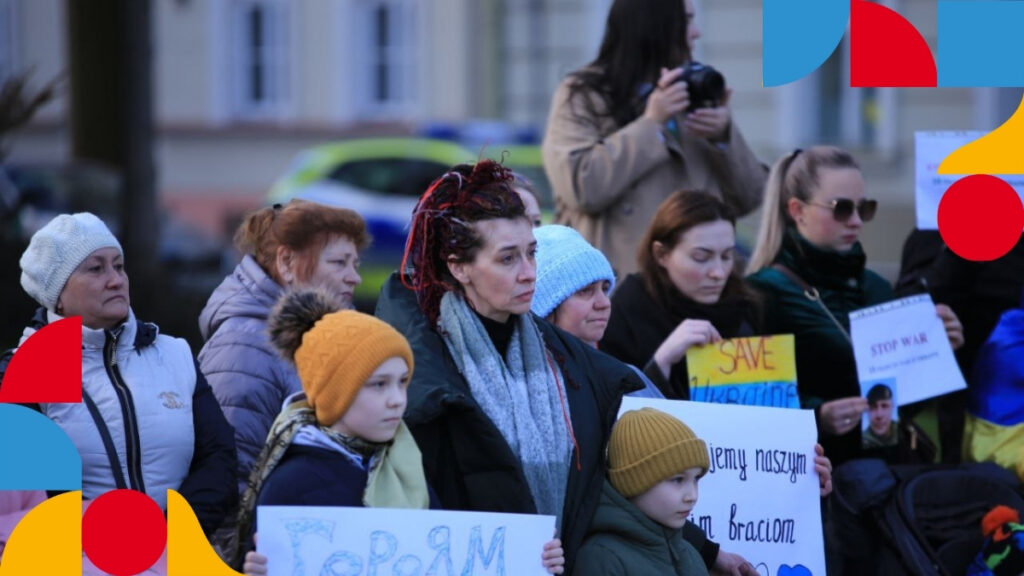
You raised the issue of the main problems for people with HIV status in Poland. What do you see as possible solutions?
Hanna: Yes, there are problems, mainly related to lack of awareness and access to health services. One of the main problems is the lack of free HIV testing by the state. It is only available through organizations that have written projects, and this jeopardizes the availability of the service for migrants and vulnerable groups.
Medical services in Poland are not always adapted to the local population. For example, family clinics lack adequate HIV prevention programs, counseling, and opportunities for anonymous testing. This creates additional stress for patients, who often feel uncomfortable due to lack of confidentiality and social support or accompaniment.
It is also important to improve the education and awareness of medical staff about HIV and the specific needs of migrants. For example, the risk of HIV infection among adolescents and young or married women who are not key populations is often underestimated. Methodological approaches and government proposals for testing women are still lacking. In addition, testing of pregnant women has been introduced only at the request of the woman, and this sample includes only up to 20% of pregnant women, which can lead to delays in diagnosis and treatment.
To improve the situation, it is necessary to introduce new training programs for medical personnel and to ensure the availability of anonymous testing and counseling for all vulnerable groups and migrant populations. It is also important to change approaches to understanding the risks and specific needs of these populations in the political sphere.
This year, for the first time, HelpNowHub is officially traveling to the International AIDS Conference. What issues do you want to raise at this conference? Has this point been discussed at all?
Hanna: We are grateful to AFEW, REG and Hanna Dovbakh (EHRA Executive Director – VirusOFF note) for their support and for allowing Natalia Tyunyahina, our board member, to attend and speak at the conference, as the financial aspects of registering and attending were a significant challenge for us as a small, newly formed community organization. We feel that this is an important step in recognizing our work and sharing our experiences with others. We plan to raise several key issues at the conference.
First and foremost, we want to showcase our achievements and innovative approaches in providing services to our clients with refugee backgrounds. In addition, we plan to raise issues related to the living conditions of migrants in Poland and the challenges they face in the medical and social spheres. We want to draw attention to these issues and gain support for further development of our projects and initiatives.
We believe that participation in such events is important not only for our promotion, but also for raising awareness of our activities among the international community.
Hanna, what other expectations do you have from this conference and how do you plan to draw attention to your initiatives in the international community?
Hanna: We hope this conference will be a platform for our voice in migrant rights and refugee advocacy. We intend to actively network with other participants, share experiences, and attract support to further strengthen our work. The main objective is to create a dialog and find partners to work together in the future.
See you soon at #AIDS2024
Learn more about Eastern Europe and Central Asia at AIDS 2024: aids2024.virusoff.info – or on our main web page: VirusOFF.info
Follow us on social media to keep up with important updates:
Instagram – Virus off
Facebook – Virus Off

